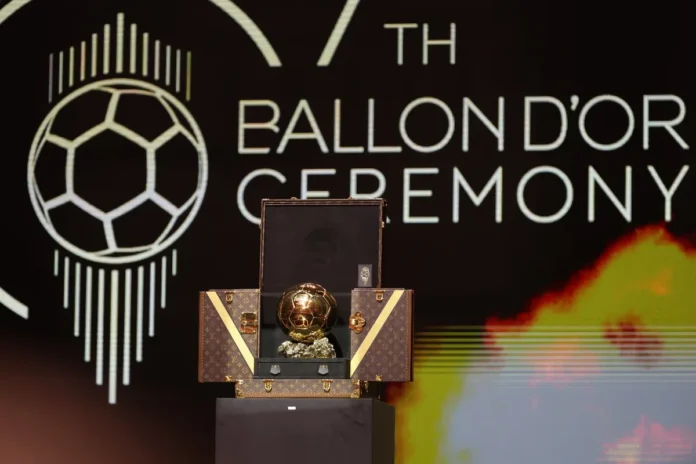On Oct. 28, Manchester City’s midfielder Rodri Hernandez won his first Ballon d’Or over Real Madrid’s star Vinicius Jr.
This decision sparked controversy, as most soccer fans around the world thought Vinicius Jr. was going to be the 2024 Ballon d’Or winner.
According to reports, he even had everything arranged for after the ceremony. From bringing all of his friends and teammates to a rented space for an after-party.
After finding out Vinicius Jr. was not going to take the award home, the club’s president Florentino Pérez cancelled the team’s trip to Paris, the host of the ceremony, the club made a statement claiming that the award did not respect them.
“If the award criteria doesn’t give it to Vinicius as the winner, then those same criteria should point to Carvajal as the winner,” the club told AFP.
“As this was not the case, it is clear that Ballon d’Or-UEFA does not respect Real Madrid and Real Madrid does not go where it is not respected.”
The award given by France Football, one of the most reputable sports publications in Europe, made changes to the metrics to determine the winner. The three main criteria are: individual performances, decisive and impressive character, team performances and achievements and class and fair play.
Even though Vinicius is well-known for provoking rivals and their fans, this has raised the question: was the award given to Rodri, or was it not given to Real Madrid?
Real Madrid’s relationship with the Union of European Football Associations (UEFA) and International Federation of Association Football (FIFA) has broken down after the proposition to create the European Super League (ESL)—a competition that would go against the traditional national and international leagues.
Proposed by 12 of Europe’s biggest and most storied teams, the ESL would replace the UEFA Champions League as Europe’s current top club competition.
UEFA and FIFA took this to the Court of Justice of the European Union, where they ruled in favour of Real Madrid, claiming FIFA and UEFA acted contrary to EU competition law by blocking Super League plans.
This leads to the most important question: how much do the interests of large institutions such as the FIFA, UEFA, or Real Madrid have become the priority over the sport?
Football fan and fourth-year international student Julian Camacho said this type of discussion has not been something common to see but said that after the “Qatari incident … there is some degree in which those institutions stake their interest in these ceremonies.”
“The amount of media power that Real Madrid contains isn’t matchable,” Camacho said. “Now soccer matches are not about who’s the best on the field, but also about external factors.”
In 2009, the former UEFA President Michel Platini celebrated a dinner in the Palais de l’Élysée, the official residence of the President of the French Republic in Paris, with several political actors such as Nicolas Sarkozy, former President of France and current Emir of Qatar Tamim bin Hamad Al Thani.
Days later, FIFA chose Qatar as the 2022 World Cup host, something that at the time was extremely rare since the hosts used to be chosen one by one, instead of announcing the host for the next three editions as it happens nowadays. Platini and former FIFA President Joseph Blatter were arrested for corruption cases and both were removed from their positions. But, has anything changed?
Today, FIFA and UEFA have modified their biggest events, making the UEFA Champions League, the FIFA World Cup and the FIFA Club’s World Cup longer and with more clubs and nations. Stacking up the calendars with more competitions, more games and more money in their pockets.

